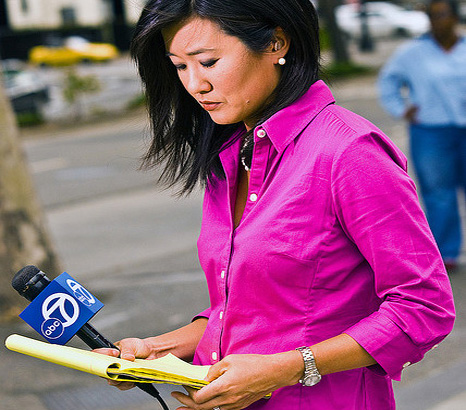BY SAM MOOLMAN
Authenticity is as important as it ever was in journalism. Authenticity, and transparency. You might have a fantastic blog or website, be a daily tweeter, even win yourself some attention from the world online, but if your writing is not up to scratch, then things are just not going to pan out.
The argument these days is that good quality work is just not good enough anymore.
Branding yourself
Working hard at being a journalist doesn’t just mean that you produce good content. It means working hard at your reputation and the particular brand that you have to offer. If you aren’t yet part of an organisation or publication, this is even more important to remember. Whether it be online, socially, or by word of mouth, if you want people listening to you and talking about you, you need to have an opinion.
Journalists have always been taught that objectivity is the cornerstone of the profession. I’m going to say that it isn’t. With the way the industry has developed, especially because of technology, you cannot afford to not have an opinion; journalists, after all, are not fence-sitters. We should have a very clear idea of what is right and wrong in our minds. I would therefore venture to say that objectivity is not the cornerstone of journalism – but balance and fairness is. So be loud and proud about what you think of the world around you, the issues you want to write about, the stories you’d like to cover. Make yourself known for what you know; this is what will win you people’s respect, and get you noticed in the industry.
Unfortunately though, we’ve all got to start at the bottom.
It’s a cruel rule of life, but being a ‘newbie’ in the biz is no picnic in the park. I have witnessed too many talented new journalists taken advantage of because of their inexperience. Some get ridiculously underpaid (if at all) and others are coffee-runners for a big chunk of their first few months. I understand that new employees always have to pay their dues, but I also find it frustratingly ironic how quickly established journalists forget about their time as the ‘newbies’. Unfortunately there’s not much anybody can do to change this situation.
Making the most of being an intern
The sad reality is that there are barely any news publications out there that have the time, money and patience to mentor new graduates and cultivate them into fine young journalists. So if you can afford it, you’re going to have to offer yourself up to do the grunt work – even if it means making coffee. Eventually there will come a day when the newsroom is going to need you and you’ll have the opportunity to show them what you’ve got. In the meantime, be grateful that you were able to get inside the walls in the first place, even though it may feel like your hands are tied. Over time, ‘the powers that be’ working around you will recognise your worth – if you’ve got it, you’ve got it. So make sure that whatever you do is done to the best of your ability – even if it’s learning to make the best damn cup of coffee in the world!
But if you can’t afford to work for free…
At the end of the day not everyone is fortunate enough to be able to work for nothing, but that doesn’t mean that you’ve reached the end of the road. As I mentioned in my last instalment, there are many back doors to getting into the industry, and thanks to technology, it is entirely possible to file some stories for a publication from home.
The level of hard work, however, doesn’t change. It could mean that you’d have to work for a full day, then come home and work on your writing. Just acknowledge that this stage in your life is not going to be forever – if you persist and remain positive. When you’re pitching your stories to editors, don’t forget to include online publications in your endeavours. Remember that it’s better to have a final product to pitch to editors.
Other tips to get you in there…
Besides starting at the bottom of the food chain, there are certain things you can do to make your life easier when it comes to breaking into the industry:
(1) Look at what you have to offer
Remember who you are, where you come from, and where you want to be. Rejection is not easy, but if everyday you come back down to your roots, you will start to recognise that the industry is ultimately looking out for itself. They don’t know you, so don’t take things personally.
In the meantime, be sure and confident about what you as an individual have going for you right now. Are you assertive? Can you speak another language? Do you have knowledge in a specialist field? Do you have access to people or places that others don’t? Play on your strengths. And if you feel that you need to work on something to get to where you want to be – be sure you do just that. You need to be tenacious about getting what you want, this is an excellent quality to have as a journalist.
(2) Recognise what is expected of you
The best journalists are the ones who know how to do everything – and if they don’t know, they learn fast. Be sure that you know your word processor inside/out, and learn the basics of photography and lay-out and design. Though you are a wordsmith by trade, you become indispensable if you know how to complement your own story with visuals. Just having these skills under your belt puts you a cut above the rest.
Editors are not just looking for people with good writing skills – you need to offer a more comprehensive package.
Dream big, start small
There are plenty of smaller community newspapers out there, but for some reason, most new journalists aim for the big guns flexing their muscles in the big bad city. Learn the ropes and gain some experience at a smaller publication. You might even find this environment to be a better fit for you. Also, don’t forget about the abundance of online websites starting up. Keep an eye out because they are always looking for writers, and the more experienced journalists will probably be inclined to overlook this sort of work.
Seek out knock-and-drops and other free publications you get at the mall or in the doctor’s office. Even the larger department stores have their own publications that will need journalists to provide content. Don’t see yourself as a sell-out if you start working somewhere that is not the ultimate workplace you envisioned in your dreams. You have to start somewhere, so say yes to every opportunity that comes your way.
About the Author
Samantha Moolman is a freelance writer and editor who is currently responsible for the Family Life articles in Your Baby magazine.
Samantha also works as an assistant lecturer for the University of Pretoria’s Department of Journalism.
Photo credit: flickr.com_Henderson Images













